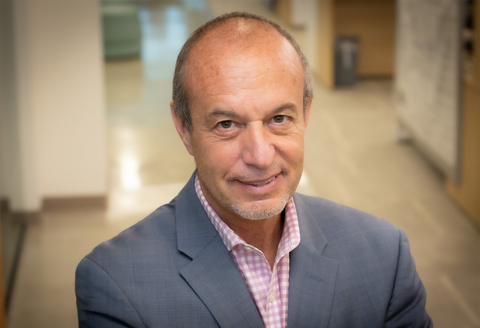To better explain the prevalence and cause of clots, researchers from The Feinstein Institutes for Medical Research investigated the rates of clotting 90 days after patients leave the hospital.
MANHASSET, N.Y.--(BUSINESS WIRE)-- Three years after the start of the coronavirus pandemic, the risk factors of blood clots and potential death for recently discharged COVID-19 patients still remains poorly understood. To better explain the prevalence and cause of clots, researchers from The Feinstein Institutes for Medical Research investigated the rates of clotting 90 days after patients leave the hospital. Results published in the journal Thrombosis and Haemostasis found that the increased rate of post-discharge arterial thromboembolism (ATE) was more than 27 percent, higher than previously publicly reported, and inpatients with cardiovascular disease experienced 15 times higher rates of ATE.
This press release features multimedia. View the full release here: https://www.businesswire.com/news/home/20230523005951/en/

Dr. Alex Spyropoulos’ latest research was published in the journal “Thrombosis and Haemostasis.” (Credit: Feinstein Institutes)
Led by Alex C. Spyropoulos, MD, professor at the Institute of Health System Science and system director of anticoagulation and clinical thrombosis services at Northwell Health, and Dimitrios Giannis, MD, a general surgery resident at North Shore University Hospital and Long Island Jewish Medical Center and former Broxmeyer Fellow of Clinical Thrombosis, researchers used a prospective registry that included electronic health records (EHRs) and electronic and telephonic surveys of COVID-19 patients with cardiovascular disease to study the rates of blood clots in the following three months post hospital discharge.
“We have been studying how COVID-19 impacts our patients, both inpatient and post-discharge with blood clots, since the beginning of the pandemic,” said Dr. Spyropoulos. “This study clearly shows that patients, particularly with cardiovascular disease, are at very high risk for clotting after hospital discharge and informs both clinicians to be more aware of their patient’s risk as well as informs the basis of future studies on the topic.”
The findings in the study recommend further research into the role of antithrombotic medications, like antiplatelet therapy, through randomized controlled trials for the post-discharge period. Previous data from randomized trials revealed that antiplatelet medications have yet to show benefit in the prevention of major thromboembolism and death in hospitalized COVID-19 patients, and in fact, may cause harm in the non-critically ill, hospitalized COVID-19 population.
“Patients and clinicians remain concerned about the risk of developing thromboembolism post-COVID-19,” said Dr. Giannis. “This research helps shine a light to identify and potentially prevent blood clots for high-risk patients well after they are sent home.”
Dr. Spyropoulos is a world-renowned expert in blood clots who has collaborated with researchers across the globe, particularly during the pandemic, to study clots in COVID-19 patients. His research surrounding the PREVENT-HD clinical trials was recently published, which studied the efficacy of rivaroxaban – a commonly used medication prophylactic medication – in preventing blood clots, hospitalizations and death.
“The prevalence of blood clots increases for patients with, and recovering from, COVID-19,” said Kevin J. Tracey, MD, president and CEO of the Feinstein Institutes and Karches Family Distinguished Chair in Medical Research. “The research of Drs. Spyropoulos and Giannis helps clinicians better recognize which patients are most at risk and how to give them superior care.”
About the Feinstein Institutes
The Feinstein Institutes for Medical Research is the home of the research institutes of Northwell Health, the largest health care provider and private employer in New York State. Encompassing 50 research labs, 3,000 clinical research studies and 5,000 researchers and staff, the Feinstein Institutes raises the standard of medical innovation through its five institutes of behavioral science, bioelectronic medicine, cancer, health system science, and molecular medicine. We make breakthroughs in genetics, oncology, brain research, mental health, autoimmunity, and are the global scientific leader in bioelectronic medicine – a new field of science that has the potential to revolutionize medicine. For more information about how we produce knowledge to cure disease, visit http://feinstein.northwell.edu and follow us on LinkedIn.
View source version on businesswire.com: https://www.businesswire.com/news/home/20230523005951/en/
Source: Feinstein Institutes for Medical Research







